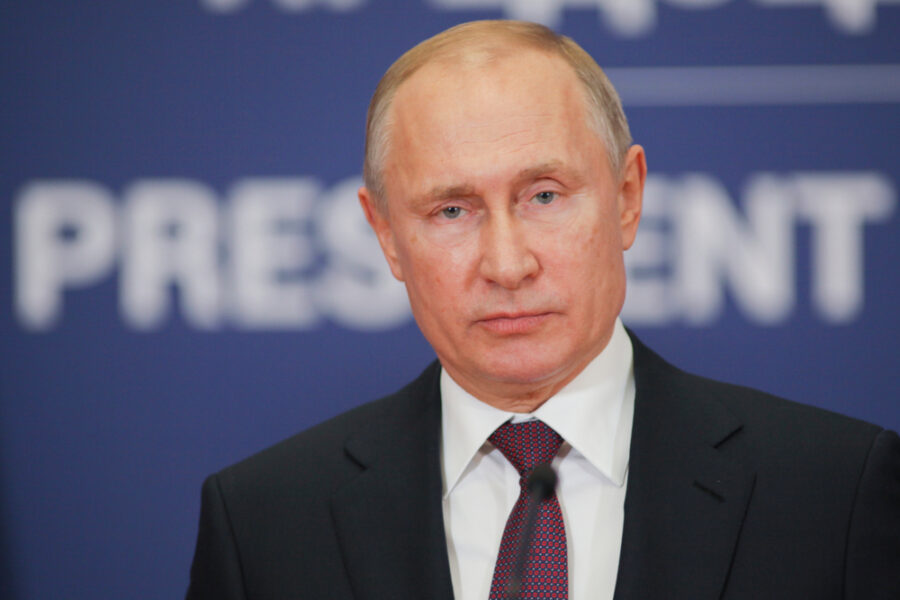Politics
BREAKING: International Criminal Court Issues Arrest Warrant For Vladimir Putin

In a significant development, the International Criminal Court (ICC) has issued an arrest warrant against the Russian President, Vladimir Putin, for allegedly facilitating the “unlawful deportation” of Ukrainian children. Along with Putin, Maria Lvova-Belova, Russia’s presidential commissioner for children’s rights, has also been issued a warrant on similar charges. It’s worth noting that Russia is not a member of the ICC.
The International Criminal Court (ICC) is an intergovernmental organization and international tribunal that has jurisdiction to prosecute individuals for the most serious crimes of international concern, such as genocide, crimes against humanity, war crimes, and aggression. The ICC is the world’s first permanent international criminal court and is designed to complement national criminal justice systems.
“Today, pre-Trial Chamber II of the International Criminal Court issued warrants of arrest for two individuals in the context of the situation in Ukraine: Mr Vladimir Vladimirovich Putin and Ms Maria Alekseyevna Lvova-Belova,” the ICC said in a statement.
“Mr Vladimir Vladimirovich Putin, born on 7 October 1952, President of the Russian Federation, is allegedly responsible for the war crime of unlawful deportation of population (children) and that of unlawful transfer of population (children) from occupied areas of Ukraine to the Russian Federation,” the statement continued.
“The crimes were allegedly committed in Ukrainian occupied territory at least from 24 February 2022. There are reasonable grounds to believe that Mr Putin bears individual criminal responsibility for the aforementioned crimes, for having committed the acts directly… for his failure to exercise control properly over civilian and military subordinates who committed the acts, or allowed for their commission, and who were under his effective authority and control, pursuant to superior responsibility.”
Since Russia is not a member of the ICC, the arrest warrant issued by the ICC against Russian President Vladimir Putin and Maria Lvova-Belova, Russia’s presidential commissioner for children’s rights, may not have a direct legal impact on Russia. However, the warrant could still have a significant symbolic impact and send a strong message to Russia and the international community about the gravity of the alleged crimes committed against Ukrainian children.
It could also potentially affect the diplomatic relations between Russia and other countries that are members of the ICC. Additionally, the warrant could encourage further scrutiny and condemnation of Russia’s actions by other international bodies and human rights organizations.
The International Criminal Court (ICC) has made several significant moves since it was established in 2002, but one of its most notable actions was the issuance of arrest warrants for Sudanese President Omar al-Bashir in 2009 and 2010.
The International Criminal Court (ICC) is primarily funded through contributions from its member states. According to the ICC’s budget for 2021, 70% of its funding comes from assessed contributions from the 123 member states, while the remaining 30% comes from voluntary contributions, such as donations from governments, international organizations, and individuals.
The ICC’s budget is approved by the Assembly of States Parties (ASP), which is composed of representatives from each member state. The ASP also oversees the ICC’s finances and approves its annual budget. In addition to member state contributions, the ICC can also receive funds from other sources, such as fines and forfeitures imposed on convicted individuals and corporations, and from grants and donations from non-governmental organizations and private foundations.
The United States is not a member of the International Criminal Court (ICC) and has had a complicated relationship with the court. The US initially signed the Rome Statute that established the ICC in 2000, but it later withdrew its signature in 2002 under the George W. Bush administration, citing concerns that the court could be used for politically motivated prosecutions of US citizens and military personnel. The US has also taken steps to oppose the ICC, including enacting the American Service-Members’ Protection Act (ASPA) in 2002, which authorizes the use of military force to free any US citizen or ally who is detained by the ICC.
However, the US has also worked with the ICC on occasion, including referring cases to the court and supporting its work in specific instances. For example, the US referred the situation in Darfur, Sudan, to the ICC in 2005 and has provided some assistance to the court in its investigations and prosecutions in that case. The US has also cooperated with the ICC on cases related to the conflicts in Libya and the Central African Republic. Overall, the relationship between the US and the ICC has been complex, with the US supporting the court in some situations but also taking steps to limit its authority and reach.

